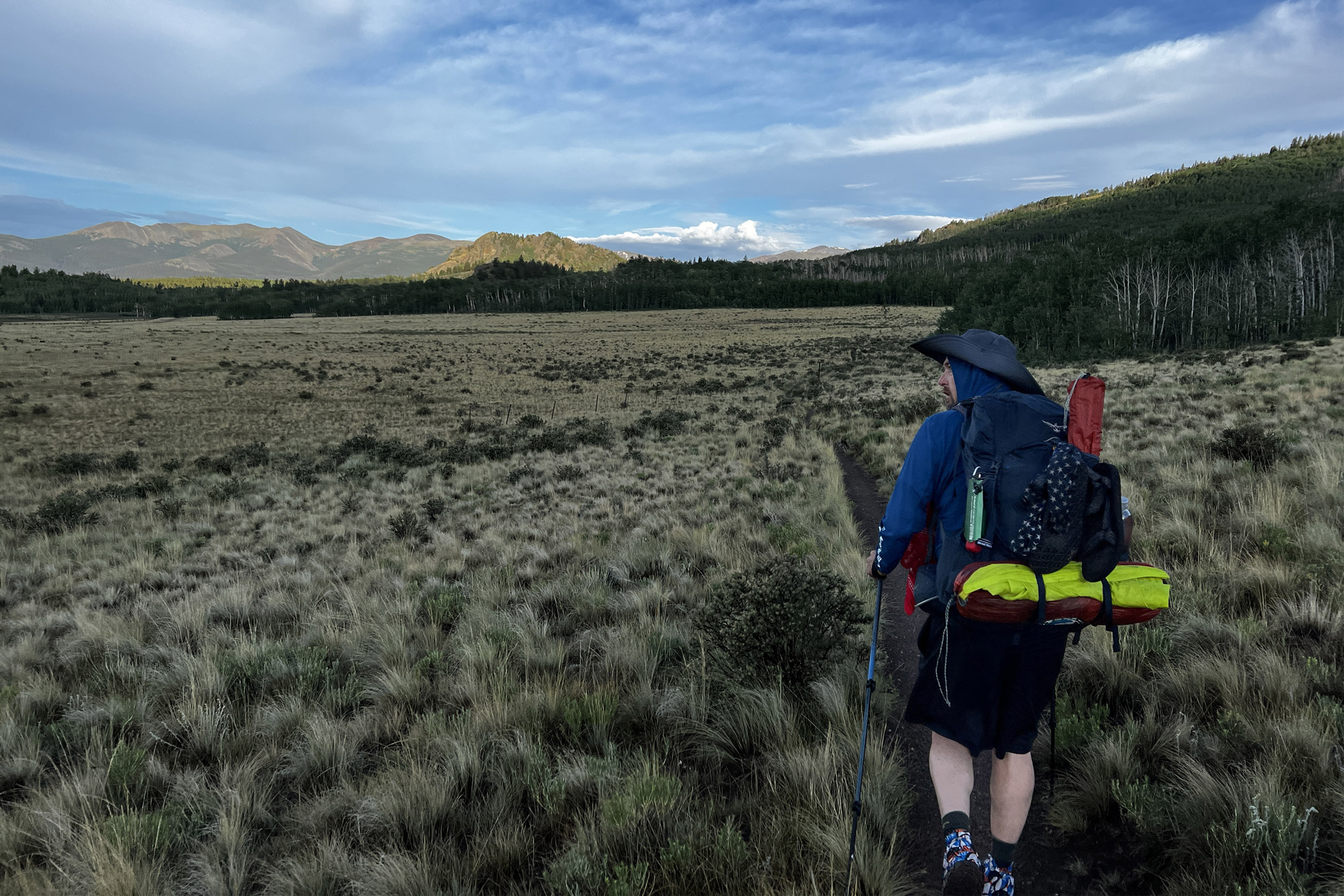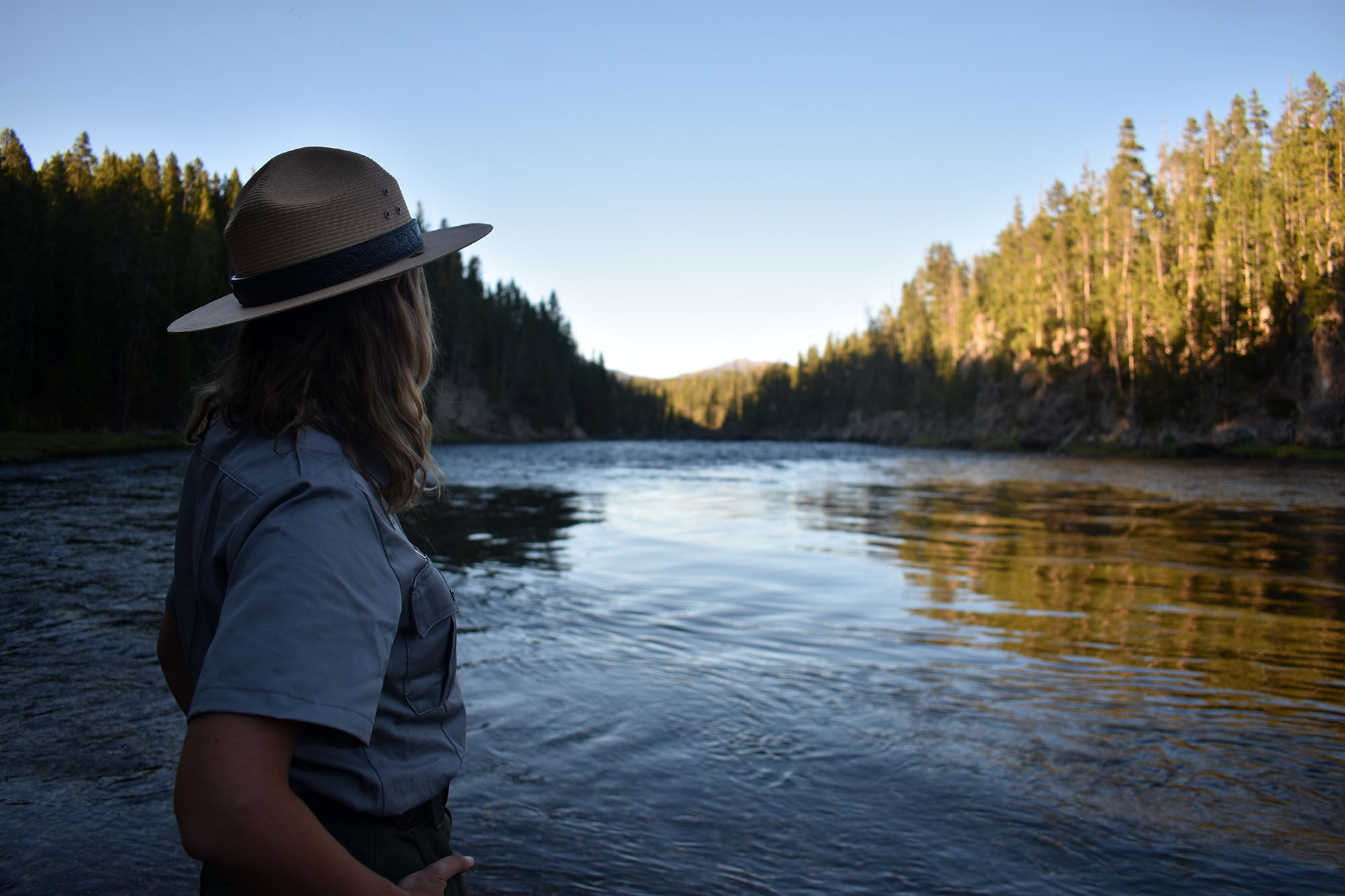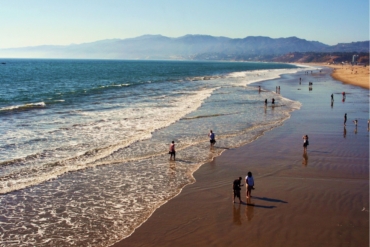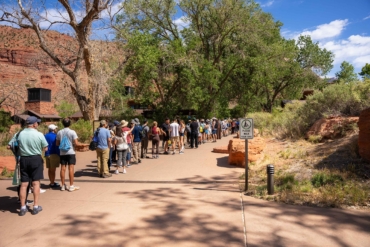The alpine air was crisp as the morning sun started to reflect from the peaks surrounding the craggy drainage. It had already been a long day. It started before sunrise, pedaling through the darkness from my house to the trailhead. Then a quick transition to trail running to the base of an obscure ridge scramble deep in Colorado’s Gore Range.
The MEC Serratus UL 25 was made for this; a companion for big day multisport adventures. The kind of adventures that require more than a running vest but something that moves better than a typical hiking daypack.
And thrive it did. It scrambled, ran, bounded, and biked in harmony with my body day after day through an eclectic mix of adventures in Colorado’s mountains.

In short: MEC’s new Serratus UL 25 is a fast little backpack. It’s a stellar companion for big days in the backcountry — the more stages, the better. MEC essentially expanded the range and capacity of a running vest by adding a simple, ultralight 25L roll-top backpack on back. Aside from a few gripes with the outer pockets, the pack does an admirable job and has kept me moving both longer and deeper into the backcountry than a running vest could.
- Capacity: 25 L
- Hydration-compatible: Yes
- Waterproof: No; TPU coating for weather resistance
- Main fabric: 70D nylon
- Weight: 479 g (~17 oz.)
- Price: $140
Pros
- Runs and moves very well with weight
- Chafe-free carry
- Versatile volume for single-day endeavors
- Ultralight, yet durable construction
Cons
- Flask pockets are narrow, bottles not included
- Outside net pocket and snack pockets lack reliable cinch closures
- Single-size option won't fit all bodies
MEC Serratus Pace UL 25 Review

Volume
The Serratus UL 25 is aimed squarely at mega-days and maybe a night or two in the backcountry if you’ve got your ultralight camp system dialed. But really it thrives in the multisport, many-mile adventure-seeking realm.

For a typical peak or ridge scramble in Colorado, my pack needs to accommodate at minimum warm clothes, rain protection, a first-aid kit, water, snacks, and a helmet. Depending on the objective, I’ll often throw in an ultralight rappel cord, minimalist harness, some anchor material, and sometimes a pair of approach shoes.
That kit quickly maxes out even the biggest running vest in my arsenal, the Black Diamond Distance 15. The Serratus UL 25 is a perfect match, however — the volume was spot on, and I didn’t need to strap anything to the outside. The roll-top closure adds a little extra volume to get it all in, too.
Design and Purpose: Fastpacking, Fasthiking

Fastpacking, or speed ultralight backpacking, is a growing sub-segment of already niche ultralight backpacking. It’s growing right alongside a general trend of folks moving faster, farther, and lighter in the backcountry thanks in part to leaps forward in gear design over the last decade.
When the Serratus UL 25 showed up at my house, I was flummoxed. No way was I going to be able to fit all of my backpacking gear into 25 L, even with my ultralight StormLoft Down Quilt sleeping bag and compact Big Agnes Seedhouse tent. I soon realized that I could, more or less, but didn’t need to — the Serratus also comes in a 40L version for extended trips.
The Serratus UL 25 would not be my first choice for more than one overnight, and even then I’d want a high probability of great weather.
Versatility is where the 25L backpack excels. It functions great as a hiking day pack for folks that like to move fast and light. The main consideration for these users is the lack of hip support — all the weight rides on your shoulders, so packing light is critical.

Speaking of light, the Serratus UL 25 is light — 479 g, to be exact. With an already light 70-denier TPU-coated nylon and spectra body material, I’m not sure how much lighter it could get without sacrificing durability. The designers at MEC did a good job of cutting the pack down to its truest essence.
Given that the pack is somewhere between a running vest and a fastpack, some folks might be tempted to snag this as a full-time running vest and occasional daypack.
I tested it over and over as a simple running vest by cinching down the side compression straps. It cinches down all right, but it’s just overkill and floppy for this purpose. It works, but it wouldn’t be my first choice as a standalone trail runner.
Serratus Pack Fit

While the overall fit was quite pleasant, I had to adjust the lower shoulder straps to dial in the tension frequently on the move. Without it perfectly hugging my body, the ride was bouncier than I’d like. That’s the reason that many other fastpacks, including the 40L version of the Serratus, employ a stabilizing hip belt.
A tiny bit of elasticity would go a long way for mitigating the bounce factor here. But again, I found that I could sufficiently address the bounce with attentive fit adjustment.
The sternum straps provide versatile security. They can move up or down the inside of the shoulder straps to accommodate a variety of body types, which is useful given that the pack comes in a single size (the 40 L comes in two sizes).
I typically wear a large in the upper body and the fit was spot on. My wife is a size small, and the vest was just too big for her to wear comfortably. The side adjustment straps and sternum straps all bottomed out before it was tight enough to make running feasible.
With the fit dialed in, I didn’t have any issues with chafing. That is impressive given the amount of weight in the pack, and rubbing on contact points for hours on end.
The shoulder straps are well designed and do a great job of distributing weight, all while maintaining breathability. Once I had it on and adjusted, the pack disappeared into the background. That’s exactly what a pack like this should do.
Pockets

Trying to force my 500mL Hydro Flasks into the holsters on the shoulder straps was not my favorite experience with this pack.
I eventually got them in there, but definitely took a few water squirts to the face in the process. The pockets are slim, they don’t cinch at the top, and I had to take my snacks out of the pockets below to get my bottles in.
Fortunately, each one has a small bungee keeper loop that holds the bottles securely once they’re in there. I never had one bounce out, even while leaning forward on chattery gravel rides.
The pockets in front of and below the flask pockets did a better job than expected at keeping my snacks locked in.
I’ll admit I was skeptical — they don’t have cinch closures at the top either. I was sure that I’d be hemorrhaging snacks throughout my adventures. But having the bottle full (or filled with air as I drained the water) provided enough tension on the pockets to keep things in there.
If, for some reason, you aren’t running with bottles, you’ll lose that security.

The big outside net pocket was useful. Though the fishnet-like mesh doesn’t stretch at all, it accommodates a decent amount of gear. I stashed sunscreen and my lightweight shell back there, and never had anything bounce out.
This pocket doesn’t have an independent cinch closure either. The closure is integrated into the side compression strap, which is slick, but unnecessary.
A simpler solution would be pockets like the The Outdoor Vitals Skyline Fastpack’s Ultramesh that are both deep and secure, without needing to be fastened. As it stands, the security comes from the tension pushing out from the contents of the pack. A less full pack means a less secure outer pocket.

There’s one pocket on this pack that I am thrilled with — the little zippered security pocket right behind the haul strap that sits behind the user’s head. All packs should have one.
This is where I stashed my headlamp, Garmin inReach Mini, keys, sunglasses during pre-dawn, and my phone when I didn’t have it in the pocket of my compression shorts. It’s fixed to the back panel so it carries well and the contents don’t bounce around.
MEC Serratus Versus the Competition
The aforementioned Outdoor Vitals Skyline is another fastpack I’ve tested recently and liked a lot. It’s a good comparison to the Serratus 25. Both packs carry and move exceptionally well over long distances.
I found the Serratus 25 to be a more versatile size. It functions better as a fast-and-light daypack and for simpler objectives requiring less gear. It transitioned between sports like gravel riding and basic trail running more seamlessly because it rides lower and closer to your back. Plus, it demands less gear volume to give it structure. It’s closer to a big running vest than the Skyline, which is closer to a fast backpack.
The Skyline is my pick for actual fastpacking, though. Its volume is just right for a few days in the backcountry with a light kit, it’s got a more supportive back panel, and the pockets are plentiful and exceptional front to back.
MEC Serratus Pace UL 25: Conclusion

It’s tough not to have a good time while wearing MEC’s new Serratus UL 25 pack. When I put it on, it meant there’s a big adventure on tap.
And the more stages, the better! It can transition seamlessly. It can also fastpack for a night or two in good weather if you’re good at packing light. Or slow it down and take this thing for a hike.
As far as packs in this category go, it’s one of the most versatile.
Big fast days in the mountains, bike-to-hikes, run-to-climbs, and any other combo you come up with are on the menu when you’re rolling with the Serratus UL 25. Just be mindful of what you put in the pockets.









